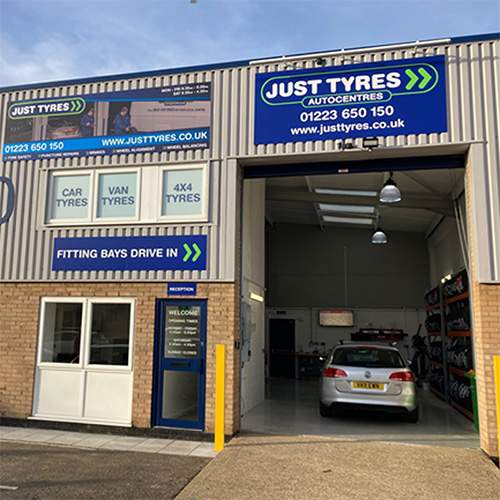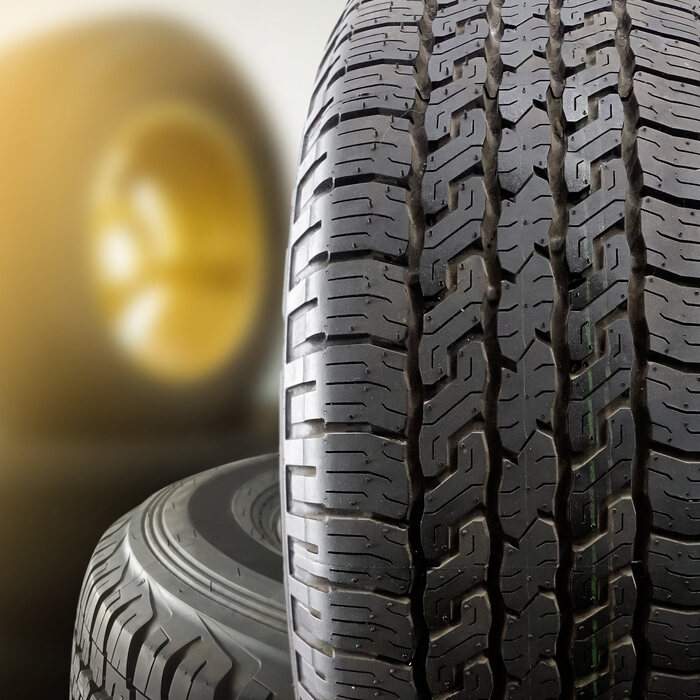Buy tyres online at great prices
HOW TO CHECK YOUR TYRE SIZE
You can find your car’s tyre size written on the sidewall of your current set of tyres, in your vehicle’s handbook or on a sticker in the door jam or inside the fuel cap door. When buying new tyres you should only go for ones that have these same numbers to ensure a good fit

FREQUENTLY ASKED QUESTIONS
Why should I worry about my tyres?
Tyres are the only part of your vehicle that are in contact with the road and play a vital part in keeping you and your passengers safe. Because they are so important there are legal requirements which relate to their condition and upkeep. The tyre must be fit for purpose and free from defects. They must also be correctly inflated to the vehicle manufacturers and tyre manufacturers recommended tyre pressures, this pressure will vary dependent upon if your vehicle is fully laden or unladen. A tyre which is fit for purpose is compatible with the tyres fitted to your other wheels. They should not show any signs of damage bulges or tears in excess of 25mm (or 10%) of the width of the tyre, whichever is the greatest. They should also not have any part of the cord or ply visible; this is part of the tyre structure and should not be able to be seen. If your tyres have any of these defects we would expect your vehicle to fail its MOT, tyres are one of the main causes of MOT failure so don’t get caught out.
How often should my tyres be checked?
We believe that tyres should be checked once a month and before any long journey. This should include the tyre pressures along with a visual check of the tyre condition and the tyre tread depth. If you identify anything that causes you concern, pop into your local Just Tyres and they’ll be happy to advise you for free. Don’t forget to check your spare tyre if you have one.
How should I check my tyres?
Always use a tread depth gauge to ensure that your tyres tread is above the legal minimum of 1.6mm, remember to measure across the whole width and circumference of the tyre. If you don’t have access to a tread depth gauge using a 20p piece will also work, if the outer band of the coin is visible then your tyres may be below the legal limit. When carrying out a visual inspection of the tyre, also remember to look at the inside of the tyre wall. You need to look for any cuts, bulges or lumps or embedded objects, always remove these if you find any. Your vehicle tyre pressures should be adjusted in line with the manufacturers recommended settings which are usually found on the door seal of your vehicle, the fuel cap or in the owner’s manual of the vehicle.
What is the legal limit for tyre tread?
The legal limit for car and van tyres is 1.6mm throughout a continuous band in the centre 3/4 of the tread and around its whole circumference. If any tyres are found to be illegal you could be fined up to £2,500 and have 3 penalty points awarded for each illegal tyre.
Why is tread depth important?
Good tread depth is important for the tyre to offer grip on wet roads. The tread pattern evacuates water from between the tyre and the road itself, leading to better grip. If you have insufficient tread depth you risk longer stopping distances, less grip and also increase the risk of aquaplaning.
Why is tyre pressure important?
Having a tyre that is incorrectly inflated can cause problems with handling and grip on the roads. It can also cause premature and/or irregular wear to the tyre itself and increase fuel consumption, thereby costing you much more than just a replacement tyre. When a tyre is correctly inflated you will obtain the best longevity, reduce the running costs of your vehicle and decrease the chances of poor handling in wet or icy conditions.
Is there anything different about fitting a 4x4 tyre?
No, whether your vehicle is a city run around or a large 4x4 vehicle, the same conditions apply and our cost of fitting 4x4 tyres is no different. Unless you take your vehicle off road and cross country on a regular basis you will usually be using your 4x4 on normal roads and motorways and the requirement doesn’t differ. However, if you are using your vehicle mainly off road there are tyres which are better suited to muddy and slippery conditions that can be apparent. In this case, talk to one of our friendly tyre experts who can advise you depending upon your driving conditions.
What mileage can I expect from a new set of tyres?
There really is no easy answer to this question as it is very dependent upon how well the tyres are maintained and what type of driving you undertake. For example a tyre that is well maintained and driven for long periods of time on a motorway will generally last longer than a tyre that has not been maintained and driven around a city environment with lots of stopping, starting and roundabouts. There are tyres in the market that claim to have better longevity over their competitors, for more information on these tyres, talk to one of our friendly tyre advisors in store.
What are winter tyres?
Winter tyres have been specifically designed to perform well in temperatures less than 7 degrees. This is due to a special compound being used when the tyres are manufactured which means the tyres remain pliant in cold temperatures, leading to more grip in icy and cold conditions. They also have a specially designed tread pattern which works to offer more grip.
Do I have to fit winter tyres?
Unlike other European countries, in the UK it is not a legal requirement to fit winter tyres, however, to get the best from winter tyres we would suggest using them between October and March of each year when temperatures tend to drop below 7 degrees.
What are all season tyres?
Many manufacturers have now developed a tyre that is suitable to be used all year round. This tyre will perform better than a summer tyre during the winter period and will outperform a winter tyre during the summer period. These tyres are a good option, especially for the UK where the winter period can be unpredictable.
What do the tyre sidewall markings mean?
The information found on the sidewall of a tyre provides everything you need to know about the size, brand and year of manufacture. For more information and details of how to find your tyre size please refer to our sidewall marking image.
What does the EU tyre labelling information mean?
The tyre labelling information is an industry standard that looks at the performance of a tyre in three different areas; wet grip, road noise and fuel performance. Each tyre is rated against these three areas and given a mark A to G for wet grip and fuel performance where A is the best and G is the lowest in terms of performance. For more information on EU tyre labelling, please refer to our guidance page.
Do you recommend replacing all 4 tyres at the same time?
Whilst it is best to fit all four tyres at the same time, fitting two tyres at a time as a pair will give the best handling and grip on each of the vehicle axles. Putting the two new tyres on the rear axle will provide the best driving experience because tyres with deeper tread will give the best grip. If the new tyres are fitted on the front of the vehicle it is likely to over steer if you lose grip in wet/icy conditions.
How do I know if my wheels need balancing?
A Telltale sign of incorrect balancing is the steering wheel wobbling at higher speeds and uneven wear of the tyres themselves.
How do I know if my wheel alignment is incorrect?
Tracking or alignment is an adjustment of the angle of your wheels to the optimum position as recommended by the manufacturer. This will lead to even tyre wear and the best possible performance. However, please be aware that simply driving over a pothole or touching a kerb can cause the alignment to be incorrect so it is worth having it checked on a regular basis. We carry out free wheel alignment checks in store with no obligation to purchase.
What is a run flat tyre?
Runflat tyres have been specifically manufactured to maintain strength in the sidewall to allow your vehicle to be driven to the nearest garage for replacement, should you encounter a puncture. However, runflat tyres are not suitable for all vehicles; if in doubt please talk to one of our friendly tyre experts for advice.
Why can your tyre prices differ online & In store?
Our online tyre prices can differ and be higher or lower than tyres stocked in store. This is because when purchasing online we source the best price available on the day of order across the UK and Europe. Tyres which are held in stock at our centres were purchased at the best price available on the day of purchase and have the benefit of being available for immediate fitment, tyres available online are secured at the best price on the date of order for fitment at a later date.*
*tyre prices online which are ordered for delivery will differ
What does your tyre price include?
Whether in store or online the price that we quote for your tyre includes fitting, VAT, casing disposal, new standard valve and balancing along with a 5 year warranty on each tyre.*
*tyre prices online which are ordered for delivery will differ due to delivery charges and do not include fitting, standard valve, casing disposal or balancing.
Do you fit part worn tyres?
No, we only sell and fit tyres which are brand new. A part worn tyre has usually been removed from a vehicle because of an issue, whether that be impact damage or low tread depth. It is not possible to always see damage on a part worn tyre which can lead to unsafe driving conditions or blow outs. We don’t recommend fitting part worn tyres, we believe that part worn is part safe.
Can punctured tyres be repaired?
Yes in many instances a punctured tyre can be repaired, they don’t always have to be replaced. Repairs to tyres must be carried out to meet the British Standard AU 159 and should always be entrusted to a specialist. Essentially this means plugging a whole, not patching over it. All punctured or damaged tyres should be removed from the wheel for internal and external examination to ensure that there is no hidden damaged that could cause a later failure. Just tyres recommends that neither externally applied patch repairs nor liquid sealants are used to repair a damaged tyre and we do not accept responsibility for problems resulting from these types of repairs. For safety reasons, Just Tyres does not recommend more than two tread repairs on tyres with a lower speed rating and only one tread repair for higher speed rated tyres. Repairs should only ever be carried out in the safety zone which can be found here.
What is TPMS?
The Tyre Pressure Monitoring System (TPMS) is an electronic system built into many new cars which monitors among other things the air pressure of vehicles tyres. TPMS feeds back real time information on each tyre on the vehicle via a gauge or pressure warning indicator usually displayed on the dashboard. This early warning system can help you to identify a slow puncture or an issue with the tyre pressure and allow you to visit a tyre specialist before it becomes an issue.
Shop with confidence
Shop with confidence
At Just Tyres we are passionate about our customers safety and the service that we provide to them. You can be assured that when you choose Just Tyres you will receive the best service, the right tyres for your needs and a great deal.




 Same Day Fitting. Order By 10:30am
Same Day Fitting. Order By 10:30am
 39 Nationwide Fitting Centres
39 Nationwide Fitting Centres
 5 Year Warranty On All Tyres
5 Year Warranty On All Tyres
 Price Check Promise. Always Great Deals
Price Check Promise. Always Great Deals




